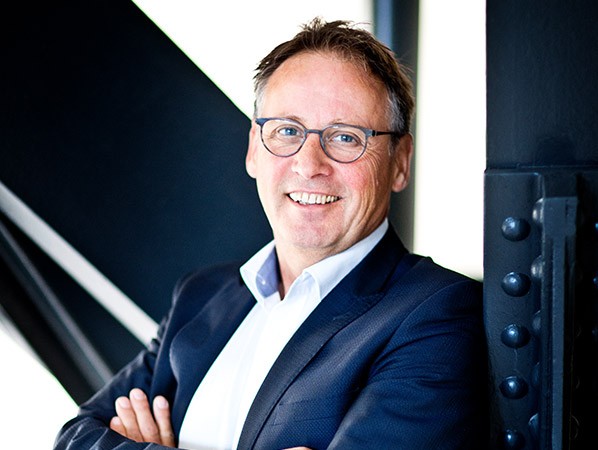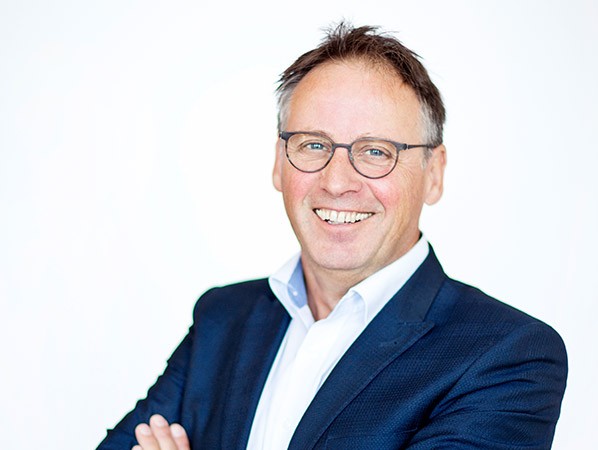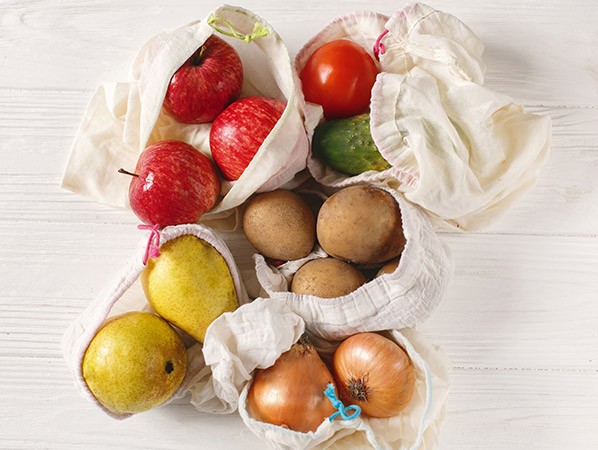
The role of the Knowledge Institute of Sustainable Packaging has changed. It is increasingly becoming a partner in business, a logical consequence of the social pressure that has arisen with respect to packaging. Director Chris Bruijnes explains how KIDV advises and supports companies in these critical times. "We are faced with exciting challenges."
"Packaging is a special thing", says Chris, director of the KIDV since 1st August 2018. "The subject is recognisable, we all have an opinion about it." Although he's only been in this role for a brief period, Chris Bruijnes knows exactly what the market developments are, where the institute is and the challenges that lie ahead. Not surprising, when you realise that he has been involved with the foundation for several years as a member of the Advisory Board. "I was faced with the vacancy for the director's position and thought 'that could be something for me'", Chris says enthusiastically. He is a chemist through and through. Sustainability suits him. In particular, deepening complex issues, promoting and supporting change. Previously, he worked at TNO, the government, he set up Milieu Centraal and he worked for various foundations.
"Excellent! We work with a nice group of people who are inherently motivated. Driven personalities who love to take action." He adds: "In my work I have always had those people around me. That drive is valuable, so I want to educate and involve them as well as I can."
"That not only the product, but also the packaging has become an important part of the debate. A logical consequence of a changing society. Households have become smaller over the years. The food industry responded to this and now offers several types of packaging. As a consumer you open a package 7 to 9 times a day. After cooking a meal you keep a 'bunch of plastic', that doesn't feel right. The packaging is now a model for waste, but that does not have to be the case. I myself have become even more aware of this during company visits. I see a lot of stats, but when you are at SUEZ waste management, for example, the mountains of waste come to life. The amount and scale are shocking. Then I immediately ask myself the question “How does the business community, and us as a knowledge institute, deal with this reality? How can we help and inspire each other? By working together!”.

Chris continues energetically: "At the moment we are increasingly having to justify the use of packaging in food, that it is not a separate entity, but stands for hygiene, shelf life, protection and communication. In addition, we see the development of reusable packaging, from bags for fruit/vegetables in the supermarket to packaging-free shopping. An example of this is Loop: a platform that delivers products at home in reusable packaging. For example, in reusable bottles, as was the case in the past with the milkman. A nice initiative, but does such a concept have a chance of success with the intensity of our society, without waste? Other examples are the ban on providing free plastic bags at retail outlets. Furthermore, you see more and more that you can order online how you would prefer to receive products. These are responses to questions from a critical society".
"Finding answers to, among other things, the question: how do we deal with this in the future? The initiatives are logical, but how are you going to give life to the process of this new way of consumption? How can you achieve even better reusable and recyclable packaging? And what does recyclability actually entail?"
"The role of the KIDV has changed over the years. In recognising the importance of sustainable packaging in society, the institute has moved closer to the market. For the first few years, it was fairly active in supporting research for industry and government, nowadays there is more individual contact with companies and people think about the packaging policy of organisations.
Chris sum up the service in a nutshell: "We help companies to make their packaging portfolio more sustainable or we provide, on request, a quick scan. We unlock knowledge and science with regard to packaging. We work together with knowledge institutions (Universities and colleges). We bring tools to the market that companies can use in the field of recyclability and circularity. We also maintain contact with trade associations, such as the CBL, Fruit & Vegetables, FNLI and the Wine Fund. These industry associations are putting together a packaging sustainability plan. The independent board of the KIDV, under the leadership of the ex-minister of the environment, Jacqueline Cramer, is assessing these plans.
Companies can contact us for advice and support. We ourselves are also actively involved in entering into partnerships with companies. We have implemented account management for this."

"The most important challenge for companies is that the pressure coming from the society is increasing. If you don't respond to this as a company, you can lose out. We can help these companies very well. Also on the international front. Until now, we were focused on the Netherlands. However, we are increasingly getting requests for support to companies that also operate internationally. Their question is how to deal with packaging, which rules they have to comply with, the Dutch or the European? This year we are going to acquaint ourselves more with our international partners. A nice challenge."
"Another challenge is how we can offer our knowledge transparently. Sustainable packaging is top of mind. Companies in various regions have set up their own initiatives. They don't know that a company in another region is busy with similar developments. We want to set up a knowledge atlas in which this I made transparent. We have a view of the parties, can connect them and make knowledge accessible."
"Another great opportunity is to bring different parties closer together. We receive questions from both manufacturers and sorters. Everyone searches for improvements at their own level. How can we, in consultation with both, ensure clean packaging waste streams, that packaging is more recyclable and that recycled material can be used in new products and packaging?"
Finally, Chris mentions the Plastic Pact that Secretary of State Stientje van Veldhoven presented on 21st February: "These are ambitions, goals on reduction and reuse of plastic. Our question is: does the implementation of these ambitions and objectives happen individually or together? We look at what our added value can be. In short, exciting times for KIDV", says Chris with a smile on his face.
"An emphatic appeal: try to innovate your packaging, go for the maximum recyclability and reuse of materials. Large parties have the power to make drastic choices to change the market. Smaller companies can also cooperate or offer their packaging in a different way. Do not wait, take action now. Do you need help with this? Please contact us
Source: © Vakblad Voedingsindustrie 2019